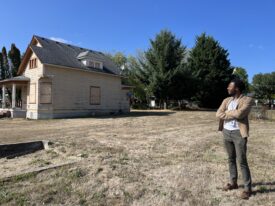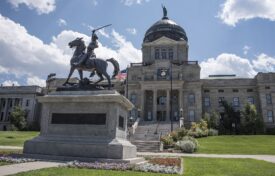 In honor of the thirtieth anniversary of the novel Ecotopia, this week’s Seattle Weekly includes a piece by Oregonian writer Randy Gragg that provides some instructive historical background on Oregon’s own Ecotopian experiment. Gragg writes elegiacally of the two legislative landmarks from the 1970’s that steered Oregon’s unique development over the next 30 years: a state land-use planning law and a plan for downtown Portland that, together, managed to both preserve rural farms and forests and promote people-friendly cities.
In honor of the thirtieth anniversary of the novel Ecotopia, this week’s Seattle Weekly includes a piece by Oregonian writer Randy Gragg that provides some instructive historical background on Oregon’s own Ecotopian experiment. Gragg writes elegiacally of the two legislative landmarks from the 1970’s that steered Oregon’s unique development over the next 30 years: a state land-use planning law and a plan for downtown Portland that, together, managed to both preserve rural farms and forests and promote people-friendly cities.
As Gragg tells it, the bills:
established a line-rather than a divide-between rural and urban that, while separating them, recognized their interdependence. Most important, together, bill and plan established a foundation of collective investment and community spirit in the vein the ancient Romans called civitas.
The land-use law was drafted by a rural Republican farmer, pushed through by a Republican governor, and passed by a legislature dominated by urban Democrats. Gragg celebrates this kind of civic engagement that searches for consensus through deliberation and informed compromise. And he sees Measure 37-the state’s new voter-approved property-rights law—as the result of a different and less benign kind of political activism: one in which people of all political stripes rely on regulation, litigation, and ballot initiatives.






